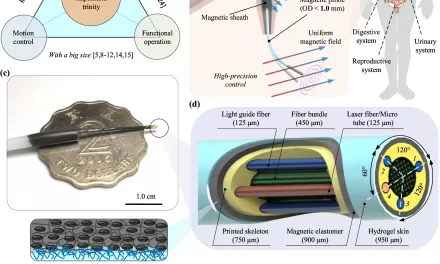Body odor from the armpits is a common concern for many people, stemming from bacteria metabolizing sweat produced by the apocrine glands. While deodorants are commonly used to mask these odors, a recent study led by Osaka Metropolitan University researchers suggests a groundbreaking approach to tackle the root cause: the bacteria themselves.
Led by Professor Satoshi Uematsu and Associate Professor Kosuke Fujimoto at the Graduate School of Medicine, the research team embarked on a mission to identify and target the bacteria responsible for causing armpit odor. Their study, published in a recent issue of a scientific journal, unveils a promising new therapy that could offer relief to individuals suffering from persistent body odor.
The researchers collected body fluid samples from the armpits of 20 healthy men and categorized them based on subjective olfactory assessments. They identified two distinct types of body odor, with 11 samples exhibiting a more pronounced smell. Further analysis revealed an abundance of odor-causing precursors and a proliferation of Staphylococcus hominis bacteria in these samples.
Armed with this knowledge, the team developed a lysin—a substance derived from a bacteriophage, or virus that attacks bacteria—that specifically targets S. hominis. Through meticulous in vitro experiments, the researchers confirmed that this lysin effectively eradicated S. hominis without harming other beneficial bacteria typically found on the skin.
Assistant Professor Miho Uematsu from the Department of Immunology and Genomics emphasized the significance of their findings, stating, “Our comprehensive analysis of skin microflora led us to identify S. hominis as a key contributor to armpit odor. The discovery of the lysin targeting S. hominis marks a significant milestone in our quest for an effective solution.”
Dr. Miki Watanabe, who contributed to the study, highlighted the potential impact of this research on dermatological treatments. “Axillary [armpit] odors pose a significant challenge for patients, with limited treatment options available,” noted Dr. Watanabe. “We believe that our study holds promise for the development of novel therapies to address this common dermatological concern.”
As the research progresses, the team remains optimistic about the prospects of translating their findings into practical solutions for individuals affected by armpit odor. With further refinement and clinical validation, this innovative approach could offer hope to millions seeking effective remedies for body odor woes.












